The GENSA network is coordinated by a voluntary core group of its members. The Core Team looks after the activities of GENSA and is responsible for providing strategic direction to the network, overseeing the implementation of activities, and ensuring that the network’s goals and objectives are met. We also have Country Representatives on board who bring the country-specific context to our work and understanding of evaluation discussions in the South Asian region.
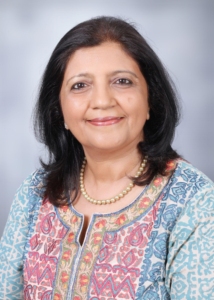
Sonal Zaveri
Sonal Zaveri is the founder and coordinator of GENSA, Gender and Equity Network South Asia. She is an independent consultant and has over 30 years of experience in strategic planning, program design, capacity building, mentoring, and evaluation, and has worked in more than 25 countries in Asia, East and West Africa, Asia-Pacific, Central Asia, Middle East and Eastern Europe at grassroots, sub-national, national, regional and international levels bringing a broad contextual experience. She has a Ph.D. in Social Work and was a Fleishman Fellow at Duke University, USA. Sonal’s interests relate to how rights, participation, transformation, and gender are addressed through collaborative, culturally responsive, and learning-oriented evaluation approaches and methodologies. She has multiple publications including book chapters, journal articles, monographs and manuals.
Sonal holds several regional and global leadership positions – founder and board member of Community of Evaluators South Asia; co-chair EvalGender+, member of the EvalPartners Coordination Committee, board member of IEAc (International Evaluation Academy) and IDEAS and as a core member of the S2SE – South to South Evaluation which addresses asymmetries in global evaluation.

Bijita Devsharma
Bijita comes with extensive experience of over 15 years in the field of development, working on a variety of thematic issues such as Child Rights and Child Protection, Education, and Gender & Human rights. She has been leading and conducting learning-oriented evaluation studies with a range of organisations and is currently the Monitoring, Evaluation & Learning (MEL) Specialist for RiseUp! Leadership Initiative Asia-Pacific at the World YWCA. In this role, she is responsible for managing MEL for 9 countries across Asia-pacific using gender transformative approaches for data collection and analysis and also guiding and informing World YWCA’s strategic framework for reaching Goal 2035. Bijita has a Masters and M.Phil. in Sociology from the Delhi School of Economics, University of Delhi. Bijita has been a part of GENSA as a core team member since its inception in 2020 due to her passion to learn from and contribute to the evaluation sector in the global south.
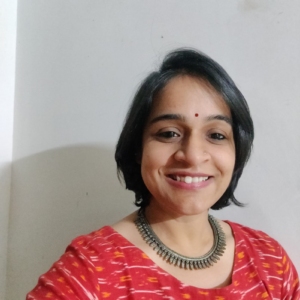
Neha Dhingra
Neha has over a decade of experience in the development sector, at UWH she leads programs with Corporate donors in broad areas of Education and income stabilisation. Her current role includes developing program strategy and design, collaborating with technical experts, and grant-making to NGO partners/ consultants to create a robust design along with M&E for programs. Prior to UWH, Neha worked with different nonprofits including ActionAid, Dr. Reddy’s Foundation, and SEWA, and also held independent consultancies. She has also undertaken program evaluation, research on Gender responsive budgeting, and customised and developed manuals/toolkits for micro-finance institutions aimed at improving their internal processes and communication. She holds an MPhil in Women’s Studies and an M.A in Social Work from Tata Institute of Social Sciences. Passionate about gender and equity, she has been associated with GENSA since its inception.
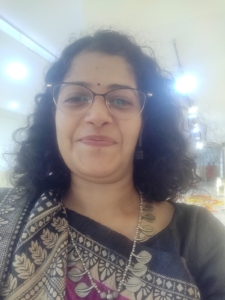
Shweta Vij Anand
An academician by profession and an evaluation practitioner by passion, Shweta specialises in the area of Participatory Communication for Development. A Ph.D. holder & a gold medalist from the University of Delhi, she has done several courses from prestigious universities like Harvard University, and the University of Pennsylvania and is a scholarship holder from the International Program for Development Evaluation Training (IPDET), Center for Continuing Education, University of Bern, Switzerland. She has more than 15 years of experience in the development sector. Her research interests include gender, ICT4D, and designing and evaluating media using participatory methods. She has been Communication Consultant to the Tibet Fund’s Strengthening Tibetan Medical Health System Project funded by USAID and CTA (Central Tibetan Administration), worked in varying capacities with several national and international organisations like Centre for Media Studies, Parirakshan Organica, National Health Systems Resource Center (NHSRC), UNICEF, International Federation of Home Economics (IFHE); has provided technical assistance to one of the first organic community radio stations – Henvalvani Community Radio, Uttarakhand, and advocated for the initiative at several platforms. She is associated with GENSA as a core member in her voluntary capacity and is currently working as an Assistant Professor in the Department of Development Communication Extension, Lady Irwin College, University of Delhi.
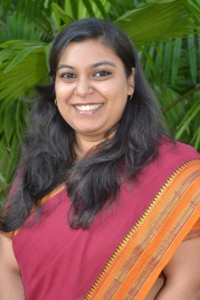
Amrita Gupta
A development and social science researcher with over 15 years of experience in research, policy review and impact assessment, and evidence-based advocacy. Amrita is currently the Data Lead- Global Accountability at the Global Fund For Women. Amrita’s areas of focus include gender, women’s and young people’s health, and economic opportunities. In her previous roles, she led internal monitoring and impact evaluation, conducted external research studies, and managed strategic communication. She was also the National Coordinator for the Non-Traditional Livelihoods Network (NTLN) managing network activities and the regional and global advocacy initiatives of the network. A published author and prolific panelist in the development sector, Amrita has also conducted several workshops across universities in India. She is also associated with the BITS School of Management (BITSOM) as a visiting faculty member. Amrita has a Master’s in Sociology from Delhi University and a Master’s in Public Health, Health Policy Economics and Finance from TISS, Mumbai.
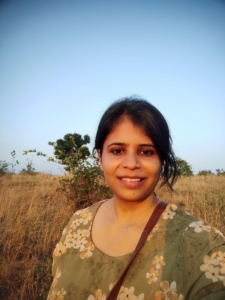
Asmita Naik Africawala
Asmita is a social sciences researcher passionate about research that promotes evidence-based practices and informs policies. Over the last decade, she has led research projects, internal evaluations, and documentation to enhance development programs. She has guided business units on enriching EdTech products and services based on data analytics. Asmita has earned a doctorate in Family and Community Sciences from the Maharaja Sayajirao University of Baroda, Vadodara, India. She takes a keen interest in Biotechnology, Bio-ethics, and issues concerning women and health.
At present, Asmita is the Lead – Program Research at Ambuja Cement Foundation. She directs research for ACF programs on Agriculture, Education, Health, Skills, Water, and Women across 11 states of India. She has previously worked with Schoolnet India Limited, Mumbai Mobile Creches, College of Social Work Nirmala Niketan, and Tata Institute of Social Sciences. In her free time, Asmita offers voluntary support to non-profit organisations, promotes plastic recycling, and soaks in nature on hikes, trails, and treks.
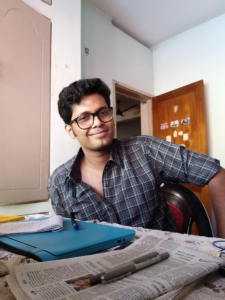
Mahesh Krishnan Ramesh
Mahesh (Xe/Xem/Xyr) is a young and emerging policy professional specialising in social and behaviour change communication strategies, with a passion for integrating art into policy work. Holding a master’s degree in Public Policy and a Bachelor of Science in Actuarial Science, Mahesh is skilled in both policy analysis and statistical methods. Xe enhanced xyr expertise in social and behaviour change communication during xyr master’s by focusing on the methodology of semiotic analysis.
Applying semiotic analysis methodology, Xe has designed social behaviour change strategies throughout xyr career, ranging from film development to campaign management. As an evaluation and research intern at UN Women in Bangkok, Mahesh focused on evaluating social norms projects. Currently, as an independent consultant, xe is further refining xyr social and behaviour change strategies. Mahesh’s career goal is to innovate psychometric models for driving social and behaviour change, particularly in the realm of gender.
